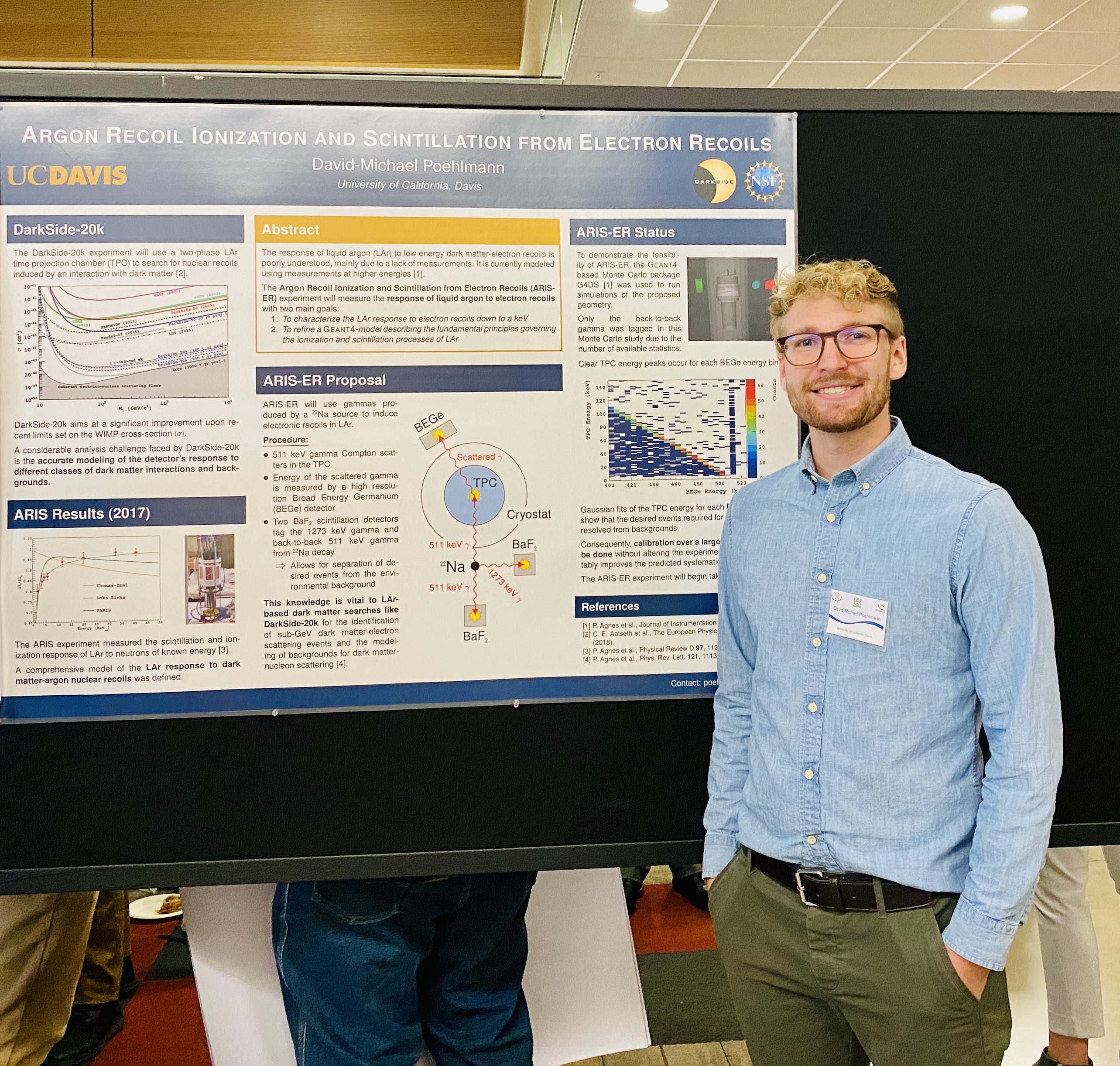Papers
The DarkSide-50 Collaboration, “Search for dark matter particle interactions with electron final states with DarkSide-50,” Physical Review Letters 130, 101002 (2023).
DOI: 10.1103/PhysRevLett.130.101002
The DarkSide-50 Collaboration, “Search for low-mass dark matter WIMPs with 12 ton-day exposure of DarkSide-50,” Physical Review D 107, 063001 (2023).
DOI: 10.1103/PhysRevD.107.063001
The DarkSide-50 Collaboration, “Search for dark matter-nucleon interactions via Migdal effect with DarkSide-50,” accepted by Physical Review Letters 130, 101001 (2023).
DOI: 10.1103/PhysRevLett.130.101001
The DarkSide-50 Collaboration, “Search for low mass dark matter in DarkSide-50: the Bayesian network approach,” submitted to European Physical Journal C (2023).
DOI: 10.48550/arXiv.2302.01830
The DarkSide-20k Collaboration, “Sensitivity of the DarkSide-20k experiment to low-mass dark matter candidates,” manuscript in preparation (2023).
The DarkSide-20k Collaboration, “Study on cosmogenic activation above ground for the DarkSide-20k project,” submitted to Astroparticle Physics (2023).
DOI: 10.48550/arXiv.2301.12970
The DarkSide-20k Collaboration, “Measurement of isotopic separation of argon with the prototype of the cryogenic distillation plant Aria for dark matter searches,” submitted to European Physical Journal C (2023).
DOI: 10.48550/arXiv.2301.09639
The DarkSide-20k Collaboration, “Sensitivity projections for a dual-phase argon TPC optimized for light dark matter searches through the ionization channel,” submitted to Physical Review Letters (2023).
DOI: 10.48550/arXiv.2209.01177
D.M. Poehlmann, D. Barker, H. Chagani, P. Cushman, G. Heuermann, A. Medved , H.E. Rogers, and R. Schmitz, “Characterization of gadolinium-loaded plastic scintillator for use as a neutron veto,” arXiv:1812.11267 (2018).
DOI: 10.48550/arXiv.1812.11267

